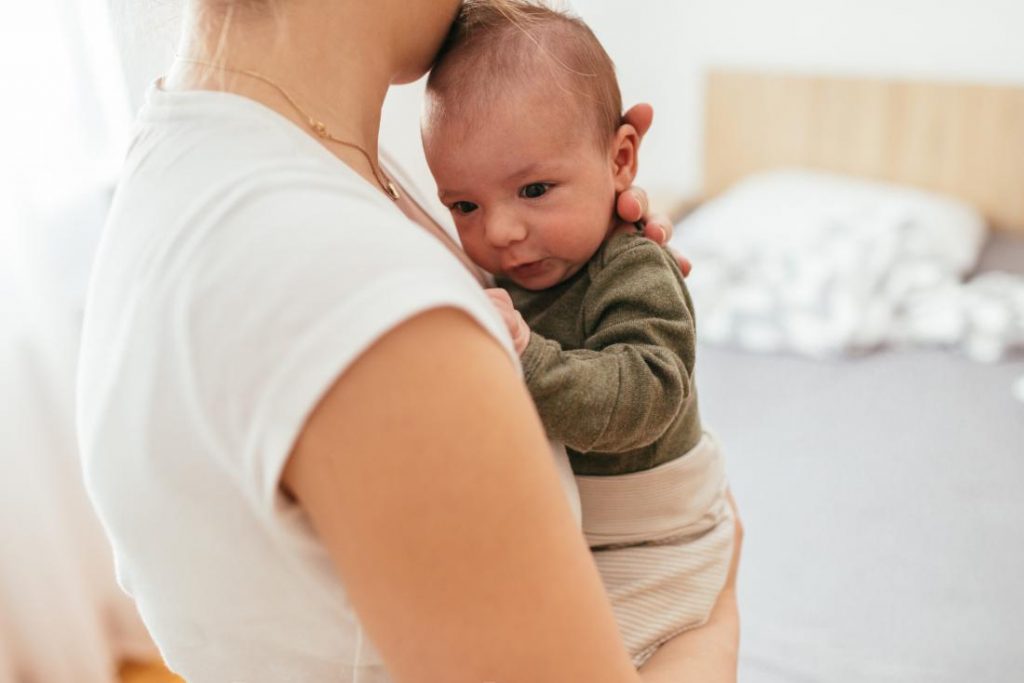
Your baby’s temperature should read 98.60F on average. Because your baby is young and has not fully adapted to the surrounding, Sometimes the temperate will keep shifting and you might notice a drop in temperature at some point.
You can help increase your baby’s temperature by adding some warm clothing or cuddling the baby against your body but if the temperature stays low or drops further, it is a sign your child could be unwell and you should call your doctor immediately.

What causes a drop in your baby’s temperature?
Your newborn child is not strong enough to keep a constant temperature like other children because of their fragile body and can record a lower temperature when the surrounding temperature changes. Several factors could contribute to a low temperature in your baby;
- Wetness: wetness will take away your baby’s body temperature by bringing more heat closer to the skin to help dry the wetness.
- Drop-in weather reading: if the surrounding temperature drops, it will directly affect the temperature of your baby.
- Using faulty thermometer: faulty gadgets will give a wrong reading and you must make sure you are using the right gadgets
- Bathing: prolonged bathing will make the temperature of your baby to drop.
- Low fat in the body: the body fat is useful in regulating the body temperature and if it’s too low, your baby will experience a drop in temperature.
- A weak immune system
- If you are using light clothing on the baby
How would you notice a drop in your baby’s body temperature?
Children born with low weight and those born prematurely, as well as those born with weak health conditions are at a higher risk of developing low body temperature. When your child has low body temperature, it is a red alert and you must act fast. These symptoms will help you identify a significant drop in temperature.
- The baby could look sick
- The skin feels cold
- The lips or fingers turning blue
- Difficulty breathing
- If the baby is not feeding well
- If the baby’s voice sounds weak
What is the correct temperature range in your baby?
Different parts of the body of your baby will give different temperature readings depending on the kind of equipment you are using. You should ensure you take the temperature correctly. Healthy records taken on different parts of the body will range between the following:
Body part Reading in 0F
Ear 96.4 – 100.4
Mouth 95.9 – 99.5
Rectal 97.9 – 100.4
Armpit 97.8 – 99.5
Any temperature below this range is an indication of hypothermia and anything above is an indication of fever which could mean your child is sick. You must take and record the temperature a minimum of four times daily.

Remedy for low body temperature in baby’s
If the temperature of your baby remains constantly low even after trying to cover the baby with warm clothing or placing them in a warmer place, call your doctor immediately. The following home remedies will help raise your baby’s body temperature.
- Ensure the baby is dry to avoid losing heat: wetness could be caused by urine or bathing for long
- Breastfeed: breastfeeding helps increase your baby’s temperature due to skin contact with you
- Cover the baby with a blanket: a warm blanket will help raise the temperature and could return to normal in a short time
- Holding the baby against your body: cuddling the baby against your body is like breastfeeding
Your family doctor may recommend the following:
- Incubation
- Using a heat lamp
- Using a radiant warmer
When to seek medical advice?
When you follow the above recommendations when your baby drops his/her body temperature, the temperature will return to normal within a short time. If the situation deteriorates and the temperature fails to return to normal, seek medical advice as soon as possible.
If you notice a change in skin color or extreme cold on the baby’s skin, seek advice from a medical professional.
